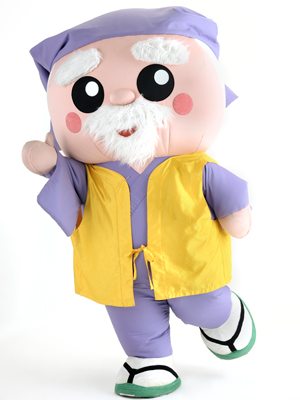Information on Ibaraki
These pages offer peripheral information about local areas in 47 prefectures.
The information may give you an idea about each area.
Ibaraki Prefecture!!

-
Local information
- Series Index
- 1. Shimane
- 2. Ehime
- 3. Fukui
- 4. Saga
- 5. Okinawa
- 6. Nagasaki
- 7. Iwate
- 8. Yamaguchi
- 9. Kumamoto
- 10. Kochi
- 11. Tottori
- 12. Ishikawa
- 13. Tokushima
- 14. Kagoshima
- 15. Nagano
- 16. Miyagi
- 17. Hiroshima
- 18. Aichi
- 19. Niigata
- 20. Gunnma
- 21. Miyazaki
- 22. Shizuoka
- 23. Fukuoka
- 24. Ibaraki
- 25. Mie
- 26. Kagawa
- 27. Gifu
- 28. Oita
- 29. Fukushima
- ext. Osaka
☆by FKR staff☆
Ibaraki is at the northeast of the Kanto plain, facing the Pacific. The eleventh populous prefecture can be considered a suburb of the Greater Tokyo; taking only an hour and a half from Tokyo to Mito, and about an hour from Akihabara to Tsukuba, so the southern part of prefecture is even closer. It is however also too close to the Fukushima Daiichi nuclear plant for comfort. The effect to the livelihood of Ibaraki residents so far seems limited: ISET-R researches.
Ibaraki is full of attractive spots. Hitachi Seaside Park is full of flowers. Kairakuen in Mito city is a historical garden. University of Tsukuba is a center of learning, and of innovative science and engineering. Japan Aerospace Explorationi Agency has a center in Tsukuba. And Kasumigaura is the second largest lake in Japan.
To explore more about the prefecture, these websites may help; JETRO, Daisuki, Navi, Internationial Association, Nature, IbaraKey, JET, Statistics, IAEA, Japan Guide, Visitor, JNTO. ━━☆☆━━━━━━━━━━━━━━━━━━━━━━━━━━━━━━━ A broker in Mito told us about the market in Octobe of 2013.
After the March 2011 disaster, the land prices particularly in north tended to decline. But the margin of decline was shrinking. New shopping centers in suburbs were taking the customers away from small inner city shops, making a ghost town of some traditional retail districts. And the economic downturn turned up the number of voluntary and court auction sales of distressed assets.
Areas along the Tsukuba Express train line was popular among home buyers due to ease of commuting to the central Tokyo. Also locations with height and firmness were preferred in consideration of natural disasters.
After the disasters, buyers favored houses over apartments; so the lease demand for apartments might be high. Good areas for leasing were Tsukuba and Mito where there were many students. There were strong demand for land to set up solar energy installations, so procuring land in rural areas at low prices via court auctions and selling it to energy companies might be profitable.
Sales prices in court auctions tended to get closer to the market prices, as there were more players.
Ibaraki was blessed with mild weather, bountiful agricultural produce, natures of hills and sea, and close to Tokyo, so there were many people moving in from Tokyo. But it was vulnerable to natural events such as flood and earthquake, so a buyer shoud research the land well to avoid landfills and areas with past water damages.
Sponsor links

